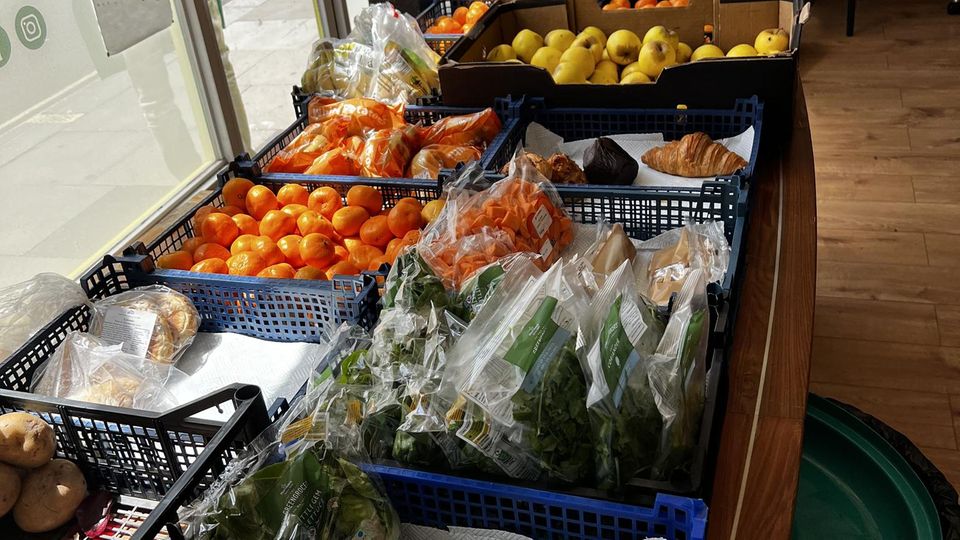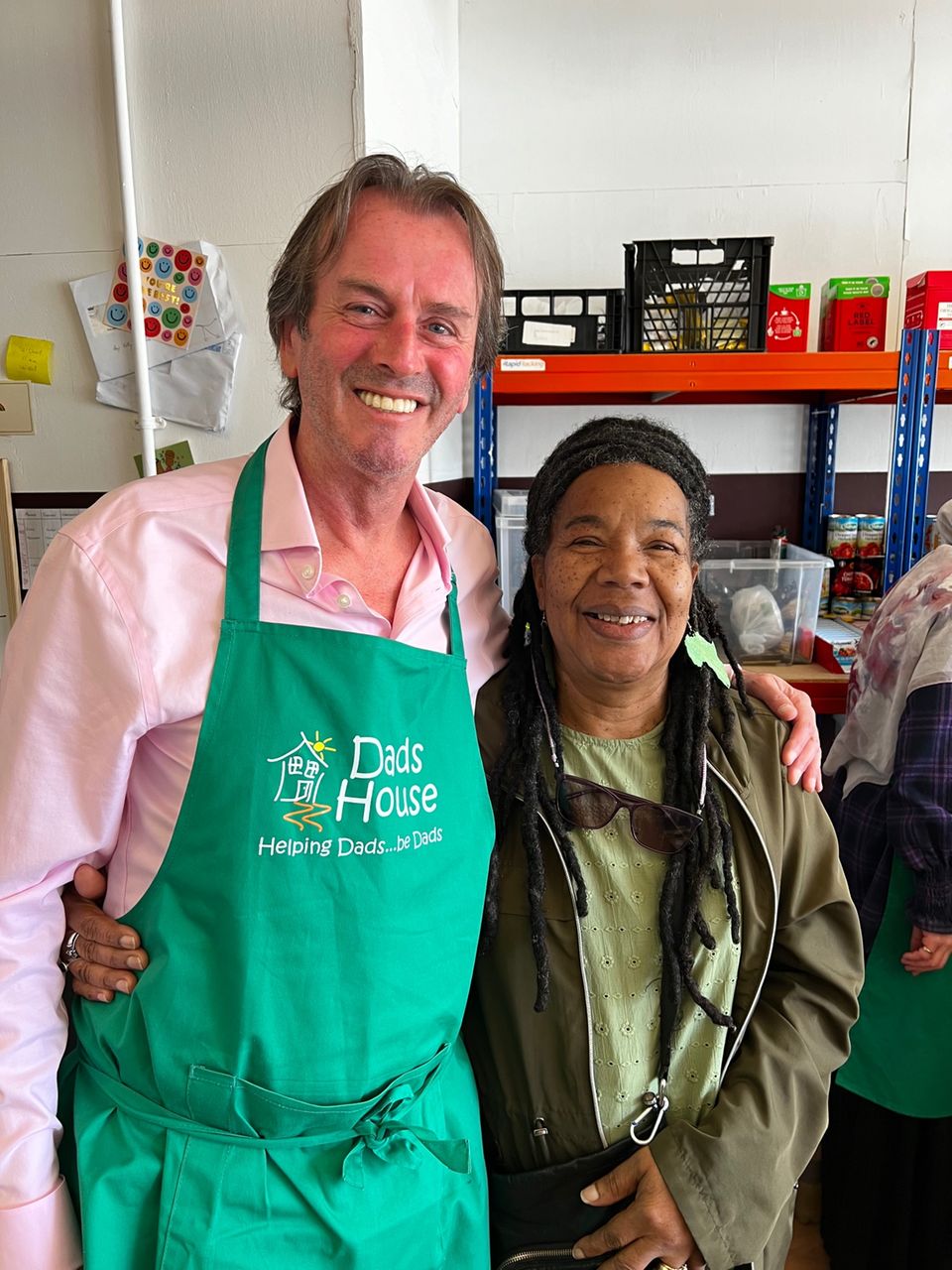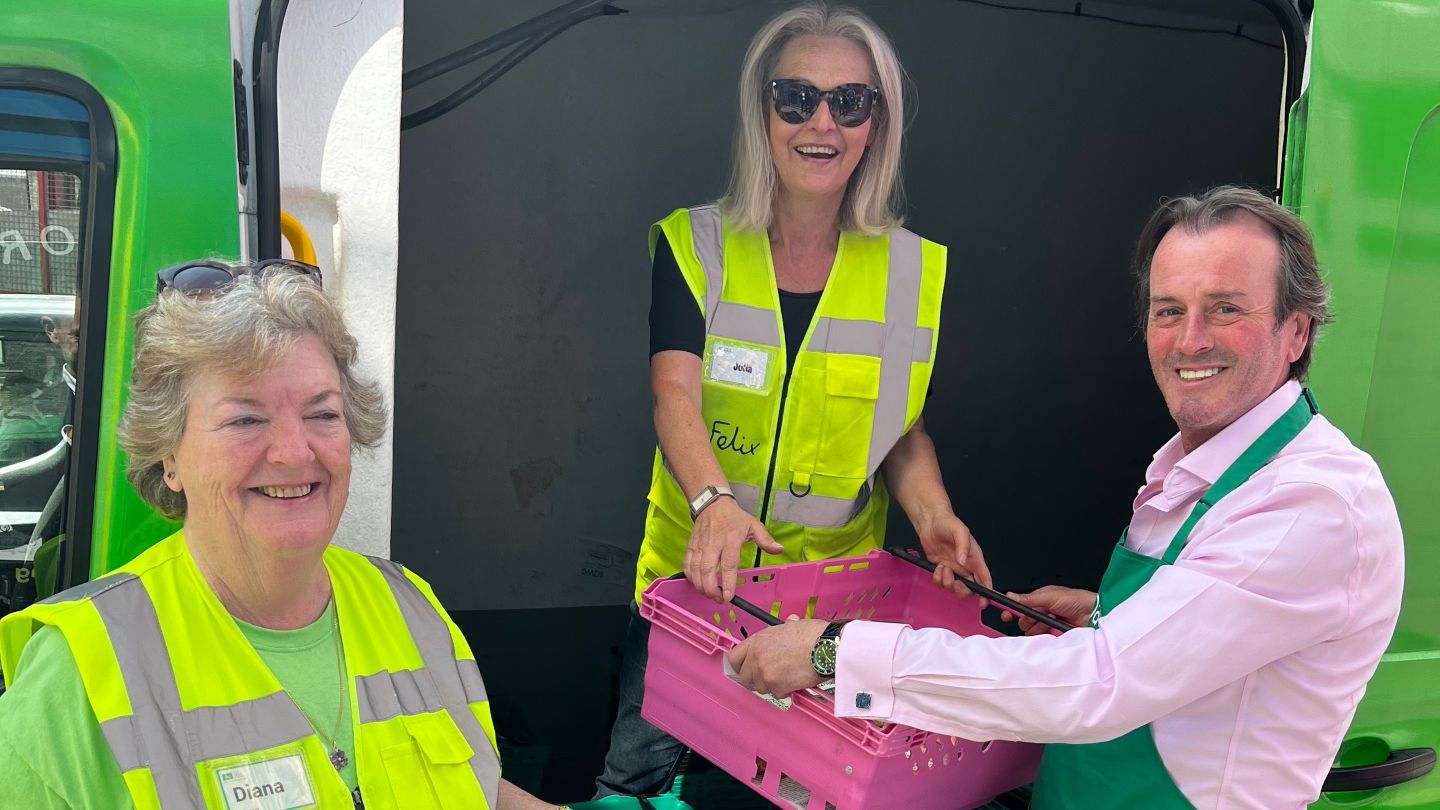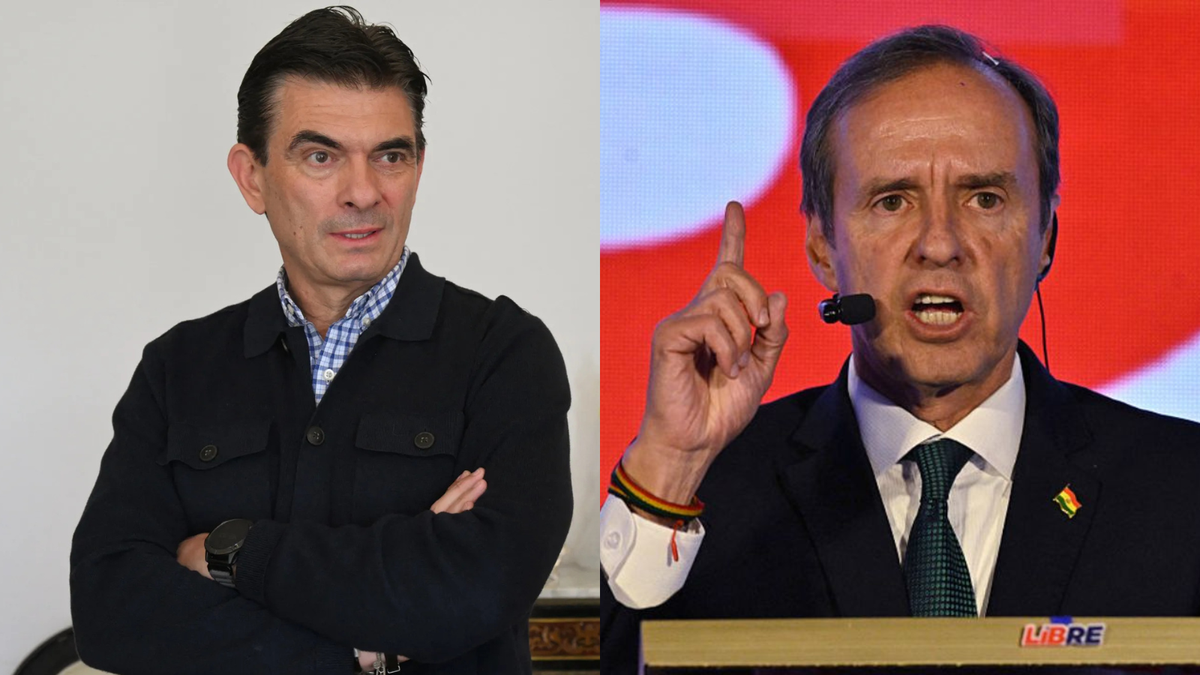Great Britain is voting. Many Britons are worse off than they were five years ago. Even people earning £60,000 a year are now going to the food bank.
This is original content from the Capital brand. This article will be available for ten days on stern.de. After that, you will find it exclusively on capital.de. Capital, like the star to RTL Germany.
When William McGranaghan leaves his shop, a concert of honking begins. Drivers greet him, passers-by stop, have a quick chat with “Billy”, as everyone calls McGranaghan, and thank him for his work. Every city has its local celebrities. Most of them arise in the glamour – including in the London district of Fulham, where actors such as Hugh Grant, Daniel Radcliffe and Tom Hardy come from. McGranaghan represents the opposite in a way: he became famous because he illuminates the dark corners, because he helps the poorest and weakest in Fulham with his project “” and because he is not afraid of contact. Not with anyone.
If anyone knows what the British people are missing, it is McGranaghan. He started with a drop-in centre for single fathers. The 60-year-old now supplies an additional 400 people with food every week. He also offers cooking evenings, legal advice and discussion groups at his food bank. McGranaghan talks to people a lot and therefore knows that no issue concerns them more than the so-called “cost of living crisis” – the sharp rise in prices in Great Britain. And, McGranaghan believes, this will also decide the parliamentary elections on Thursday.
Five years after the last election, the mood in the country is once again at its lowest point. According to polls, the conservative Tories, the party of Prime Minister Rishi Sunak, will only be the third strongest force, behind the extreme right-wing “Reform UK” and the liberal “Labour” with favorite Keir Starmer. Almost half of all Britons no longer have any trust in any government, as a survey by the National Centre for Social Research shows. The main reason for this is the sluggish economic development, which has recently taken more than it has given to the British.

40 percent fewer donations
William McGranaghan carries a few more boxes from a delivery truck to his food bank. Lettuce, apples and carrots. “Luckily we have loyal food donors,” he says. They include large grocery chains, small bakeries and drugstores. They deliver everything from groceries to cosmetics and pet food.
And yet, not everything is going well. Even in wealthy London, donations are falling. “Donations and economic performance are linked. If you have less yourself, you can give less,” says McGranaghan. The volume of donations was therefore around 40 percent lower last year. “Dad’s House” needs almost £400,000 annually to pay the seven full-time employees, 40 helpers and energy bills. At the same time, costs are rising. McGranaghan pays almost £900 a month for energy alone, he says, while at the same time more and more people are seeking help.

Pebsy is one of them. The 68-year-old has long dreadlocks and sunglasses around her neck. Pebsy laughs a lot, although objectively speaking, she has little to laugh about. She never earned much. But since costs have risen and her daughter has become ill, the only option is to go to the food bank. Once a week she now goes to Dad’s House, where she can choose freely for two pounds. “A little vegetables, pasta and tea. I don’t need anything else,” says Pebsy. “These are products that I used to buy at discount stores. But since the crisis, there are fewer and fewer offers. Then I can’t afford them anymore.” She has about 100 pounds left over for food a month. Not a lot, but still more than others.
To show how dramatic the situation is, McGranaghan opens his email inbox. He looks at dozens of unopened messages. “Since the beginning of the year, we have received 450 requests for help by email, 500 via our website and almost 2,000 calls. We answer everything, but we can no longer help everyone,” he says. During the Corona period, 1,000 people sometimes came to the food bank every week. Today there are still 400, which is about 150 more than in 2019. “And we could probably take in twice as many again.”
Those in need of help no longer include socially disadvantaged people – poorly educated, financially dependent or unable to work – but the former middle class of London. “We have people here with an annual income of 50,000 or 60,000 pounds. Classic workers, self-employed people who want to pay their employees and save money on their own. We didn’t have them here before,” says McGranaghan.
Reality in Britain: food or heating?
The classic examples are loans, separations or rent increases. McGranaghan names dozens of cases by name. “Anyone who previously paid £1,000 for their home loan now has to pay £2,000 for interim financing and higher energy costs. And that within just two years. At the same time, taxes have risen by 30 percent.”
When asked whether he feels seen by the government, McGranaghan waves it off. The local authority, yes, but in the big election campaign for 10 Downing Street, “up until two months ago, the cost of living was not discussed once.” That is exemplary. “So much has built up. No government in the world can solve it in a few months.” But it is important to hurry, because, says McGranaghan, a “hurricane” is coming in winter. “People are faced with the choice of heating or eating something. Sometimes it is not possible to have both.”
Source: Stern




